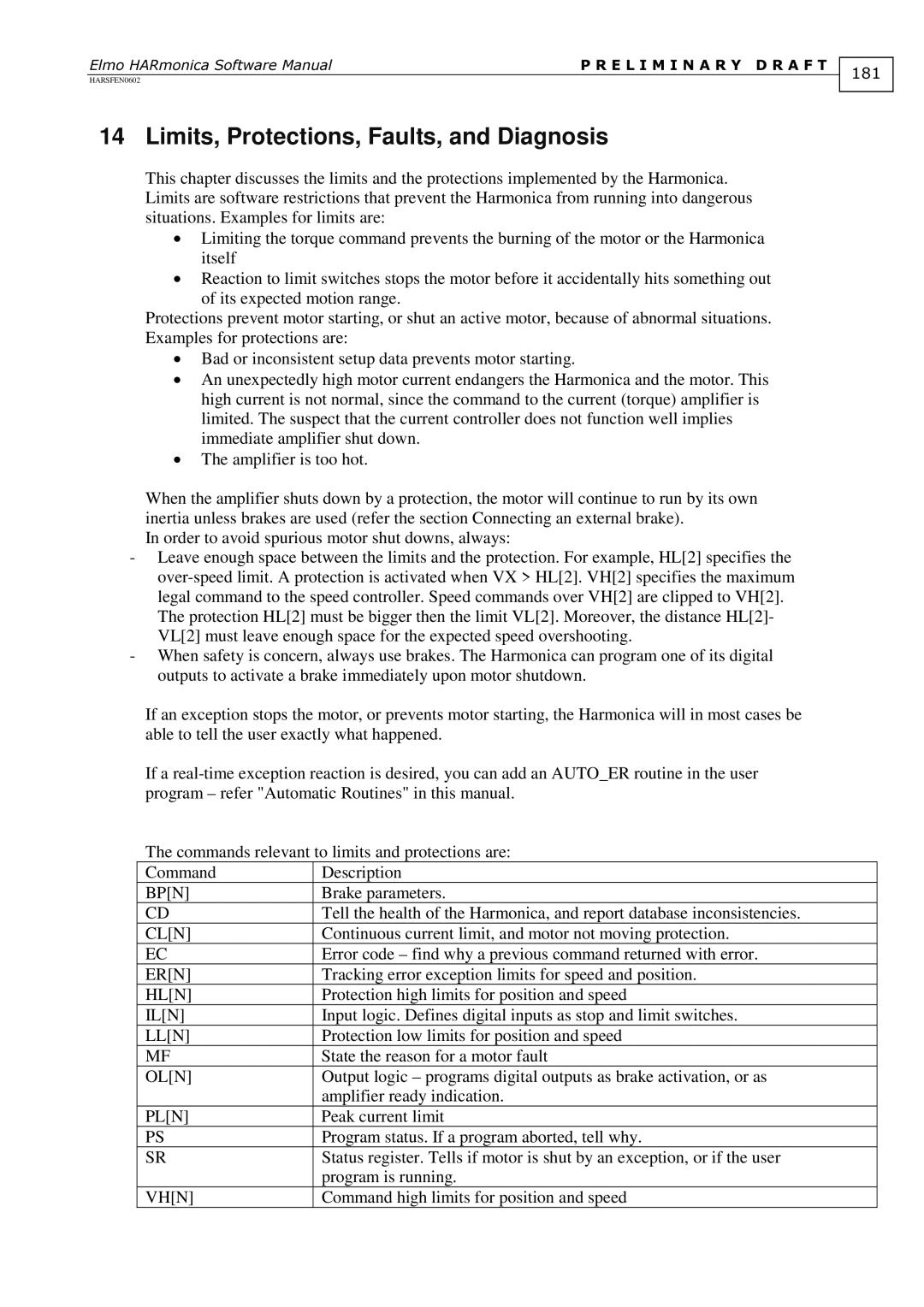HARSFEN0602ElmoHARmonicaSoftwareManual | PRELIMINARYDRAFT |
181
14 Limits, Protections, Faults, and Diagnosis
This chapter discusses the limits and the protections implemented by the Harmonica. Limits are software restrictions that prevent the Harmonica from running into dangerous situations. Examples for limits are:
Limiting the torque command prevents the burning of the motor or the Harmonica
•itself
Reaction to limit switches stops the motor before it accidentally hits something out of its expected motion range.
Protections prevent motor starting, or shut an active motor, because of abnormal situations. Examples for protections are:
Bad or inconsistent setup data prevents motor starting.
•An unexpectedly high motor current endangers the Harmonica and the motor. This high current is not normal, since the command to the current (torque) amplifier is limited. The suspect that the current controller does not function well implies immediate amplifier shut down.
The amplifier is too hot.
•the amplifier shuts down by a protection, the motor will continue to run by its own inertia unless brakes are used (refer the section Connecting an external brake).
In order to avoid spurious motor shut downs, always:
-Leave enough space between the limits and the protection. For example, HL[2] specifies the
The protection HL[2] must be bigger then the limit VL[2]. Moreover, the distance HL[2]- VL[2] must leave enough space for the expected speed overshooting.
-When safety is concern, always use brakes. The Harmonica can program one of its digital outputs to activate a brake immediately upon motor shutdown.When
If an exception stops the motor, or prevents motor starting, the Harmonica will in most cases be able to tell the user exactly what happened.
If a
The commands relevant to limits and protections are:
Command | Description |
BP[N] | Brake parameters. |
CD | Tell the health of the Harmonica, and report database inconsistencies. |
CL[N] | Continuous current limit, and motor not moving protection. |
EC | Error code – find why a previous command returned with error. |
ER[N] | Tracking error exception limits for speed and position. |
HL[N] | Protection high limits for position and speed |
IL[N] | Input logic. Defines digital inputs as stop and limit switches. |
LL[N] | Protection low limits for position and speed |
MF | State the reason for a motor fault |
OL[N] | Output logic – programs digital outputs as brake activation, or as |
| amplifier ready indication. |
PL[N] | Peak current limit |
PS | Program status. If a program aborted, tell why. |
SR | Status register. Tells if motor is shut by an exception, or if the user |
| program is running. |
VH[N] | Command high limits for position and speed |
